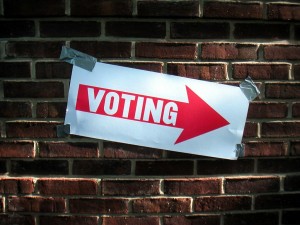By Charlene Howard, M.A.
On Thursday, January 7th, I made an abrupt about face in my lesson plan to lend time for the juniors in the Social Justice course to talk about what took place at the Capitol the day before. Upon my request, a few early arrivals searched the internet for footage of that day’s events so that it could be posted in the chat or on our Google Classroom page for their classmates’ convenience. As students trickled in they were instructed that after viewing the video, there would be an opportunity for them to share comments, feelings, etc., as we discuss what was labelled an insurrection and direct assault on one of our national treasures much less on democracy itself.
After prayer, we began. Immediately, sentiments of disbelief at the blatant disregard for the sanctity of the government building, outrage at the disrespect of personal offices and disgust at the inadequate response to this vehement violation of the Capitol were expressed. Most loudly were cries from my students: “If that had been Black people doing the things those white people did, they’d all be dead!” “You can’t bum-rush your way into a federal government building, they should have been shot!” “Why wasn’t the National Guard ready for these people? They were already deployed when the Black Lives Matter protests were planned to begin!” Anger, frustration and the reinforcement these events had in further communicating that black, brown and marginalized people will always be the victims of white privilege — a privilege that allowed the rioters to go as far as to have a rampage with comparatively gentle pushback — permeated the conversation culminating in the acquiescent statement, “It ain’t never gonna change. That’s just the way it is In America.” And you know what? I must admit, I share their sentiments and feel their pain.
You see, I teach in a predominantly Black Catholic High school and am, myself, a 5th generation African American Catholic. A child of the Civil Rights Movement and activist in my own right, I have been in the struggle all of my life. Add to this that I am a long-time catechist, evangelist and lover of my God and that he made me Black and Catholic for a reason. As my students expressed their intensely felt emotions, the question that kept ringing in my brain was, “What do I say?” I struggled to find the right words with which to respond. What they said was true. There is a clearly present inequity in how our people are treated in American society. How can I give them a response that doesn’t sound as though I am excusing unacceptable behavior without patronizing or seeming insensitive to their disillusionment? As would have it, I had the answer all along, because the Holy Spirit gave it to me – Justice.
I reiterated to my students that our study of justice gives us what we need to respond to and correctly process such events as we’d witnessed. If we believe that justice is defined as the establishment of loving relationships between God, humans and creation so that life flourishes the way God intends, then any and all responses to injustice are to be true to this idea. At its core is that we must hold as indisputable that all human life has value and dignity because we are all made in the image and likeness of God. We don’t even have to believe in God; it is still true. If, then, we genuinely believe that we are valued, we acknowledge that every human on the planet is. This means we are related and as such must work to make sure we collectively flourish. Even if we disagree, are angry or even willfully do harm, this does not change that God made us so we have value; our dignity remains.
Therefore, we must work tirelessly to insure that the value of every person is protected, lifted-up, enhanced, promoted. It means that when we, as citizens in the United States, exercise our right to peaceful assembly, all of us should be allowed to conduct our protest without fear of being shot, hurt or arrested despite those who would disagree with our cause or mission. It also means that as citizens, our protest or our assembly work to send the message we intend and not decay into any form of wanton destruction of person or property. Consider the following. What would it have looked like if the protests to call for the end to the killing of black people by law enforcement’s use of excessive force were calmly and steadily responded to without any tasing, bullets or tear gas being thrown? Conversely, what would it have looked like if the throng that pushed their way into the Capitol had formed a perimeter around the entrances, then sat down, refusing to leave, doing so in an orderly, quiet manner? In the end, the dignity of every person involved – law enforcement officers, protesters, media crews, by-standers, proponents, opponents – would be respected, opening the possibility, the hope, for dialogue toward addressing their concerns. Wow, how simple it could be!
So, at the end of class, what I told my 11th graders was what I’ve been teaching them all along: if we want justice, we must have loving relationships. Love is expressed as respecting the dignity of the people God made and the value of everything God brought into being. When that dignity is attacked or value diminished, we have a responsibility to make lasting change and fight injustice in ways that also demonstrate all life must flourish the way God intends.



